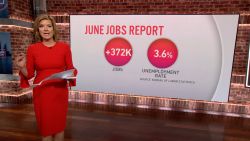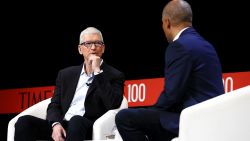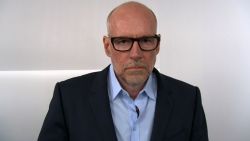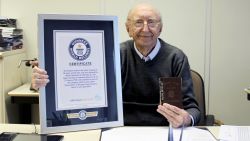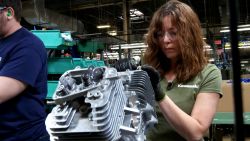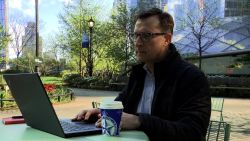After 22 years away from 9-to-5 work, Jennifer Fleck returned to her first career as an engineer.
During her time off, she raised three kids, started a local orchestra and worked part-time in a variety of businesses, from direct sales to program management. She always talked about one day returning to engineering. But over time, she says that faith in her abilities began to wane.
Executive Brief
“I always said ‘I can always go back to engineering. I can never get time back with my kids’ — but as time went on, I didn’t believe that as much,” she says. “I didn’t want to go out and sell myself as a potential program manager or an engineer, because I wasn’t convinced [of my abilities].”
But one day scrolling through Facebook, she came across a link to Take 2 — the General Motors career re-entry program aimed at recruiting more experienced employees back to the workforce after they’ve taken a long break. Fleck talked with her family, touched up her résumé and sent in her application.
The 12-week program was her ideal transition back into the workforce. She brushed up on her engineering education, caught up on technological changes and — most importantly, she says — learned how to start seeing her “break” as another chapter in her career journey.
“I feel like I’m constantly dusting off cobwebs and I feel consciously incompetent in many areas,” Fleck says. “I know I don’t know a lot of stuff — but I’m willing to learn.”
A diversity of experience
Career reentry programs — or “returnships” as they’re sometimes called — offer women and men an opportunity to “try out” the big transition back into the workforce. Workers that have taken years, or even decades off from full-time work, either to raise children, help with elderly relatives, or deal with personal health issues, have been able to gradually return to successful careers at companies like IBM, Goldman Sachs, General Motors and others.
Extended time away from a career means employees miss out on training and market developments, but it also means they’re gaining other skills and bringing some needed diversity to the existing workforce, says Megan Hogan, vice president and head of diversity recruiting at Goldman Sachs.
“Definitely it’s a diversity program,” she says. “Returnships fit squarely in my purview. It’s about diversity of experience.”
Lori Taylor, a participant in Goldman Sach’s returnship program and now a vice president in the bank’s risk division, says the opportunity felt like a chance to “hit the ground running” after six and a half years away from the workforce.
“To be able to come in and realize my skills, experience and training were still relevant, that what I knew was still very applicable — it made that transition really easy,” she says. “It helped with confidence, I would say, and feeling like I was able to contribute right away.”
In order to qualify for both the Goldman Program and GM’s Take 2, participants have to have been away from the workforce for at least two years. Some return to the work they were doing before their breaks, but others train for entirely new careers in other fields, so previous experience is not necessary.
Fleck says the 12-week program at GM taught her to see her time away from her career in a different light. Her engineering skills hadn’t vanished, and in fact, her time as a full-time mom even expanded her skillset.
“It can be overwhelming with the number of issues, the number of emails across my screen,” Fleck says. “But with raising kids and volunteering and working, you’re constantly bombarded with different issues, and you need to be able to bounce back and forth between different issues. So I think my experience both as a parent and working to get stuff done at home, it helps me manage stuff better.”
A diversity of skill
But women and men reentering the workforce may still battle stereotypes about their age, their abilities or the length of their break, says Lauren Rikleen, president of the Rikleen Institute for Strategic Leadership.
“All the old stereotypes persist: ‘You’ve been out of the workplace a few years and you’re not going to be able to catch on or be as quick’ … the biggest issue for me is that it discounts the importance of wisdom,” Rikleen says. “Wisdom is something you only get with age and experience, and no matter how smart you are in college or your early jobs, the wisdom from working through problems and hardships and failures and is an invaluable component in the workplace, and should be thought of as a critical part of any team.”
Fleck and Taylor both say they initially worried about catching up with the technological changes that now populate offices.
“The computer and Skype and the conference calls and the video systems — I was worried every time I flubbed something up they’d say ‘Oh, you can’t do this,’” Fleck says.
But as more experienced workers introduce more age diversity into the workforce, they also bring maturity and some much-needed institutional knowledge. If anything, sometimes these returning workers have skills that are even rarer among younger employees, interns and recent college graduates, says Scott Klott, talent acquisition lead at General Motors.
He points out that some of GM’s IT systems still run on a mainframe, a specialty that’s harder and harder to find.
“You don’t get many college grads who say ‘I want to be a professional in the mainframe space,’” he says. “But especially someone who has been a mainframe developer who took time off, they’re coming back and saying ‘Who really wants a mainframe developer? My skills are antiquated. Who wants me?’ and the answer is ‘We do! You’re really hard to find. We need your talent.’”
Returning employees are bringing something else valuable: maturity and perspective.
In the first part of her career, Fleck says she really struggled to be taken seriously as a female engineer. She remembers having to “route” ideas through men in order for them to be accepted.
“If I come up with questions and ideas, people seem to take me more seriously,” she says of her job now. “I think it’s a combination: people have changed, but also I have more confidence in me, and it comes across.”



